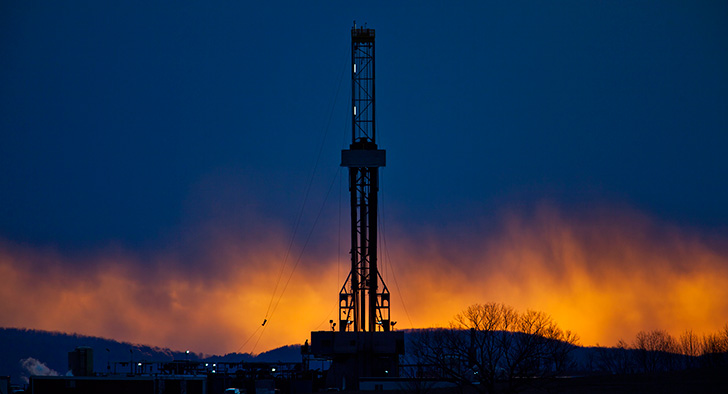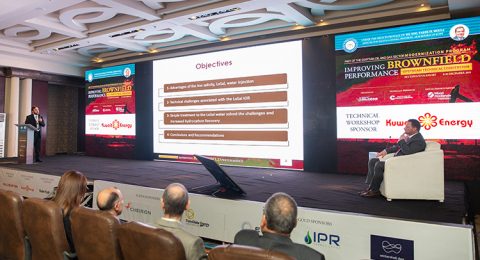The Balance between People, Planet, and Profit
By Patricia Tiller, Partner, Andrews Kurth Kenyon (Middle East) DMCC
Unconventional oil and gas presents significant potential for Egypt. However, along with this potential, the growth of unconventional techniques presents increased environmental, social, and corporate risks. To date, the legal framework in Egypt has not directly addressed the regulation of unconventional oil and gas development. For the most part, regulation of unconventional development has not been needed.
Egypt has abundant conventional oil and natural gas resources and the application of horizontal drilling and multi-stage hydraulic fracturing has not been required to boost annual production. However, unconventionals are attracting ever greater attention thanks to the US shale revolution and in 2013, operators such as Apache and Shell initiated shale wells/multi-well horizontal drilling programs in the Western Desert. The Ministry of Petroleum now has the unenviable task of deciding whether to introduce a legal framework for unconventional concessions.
Establishing the Right Framework
Technical guidance on hydraulic fracturing risk management is available from multiple sources. For example, IPIECA and American Petroleum Institute provide guidelines aimed at calculating and minimizing the environmental risks associated with unconventional oil and gas production. Understanding and applying best practices used in foreign markets will help move Egypt towards sustainable project development.
Most importantly, any legal framework introduced for unconventionals must strike a balance between establishing reasonable safeguards for the health, safety, and general welfare of the public and the environment, while encouraging the production of available resources. This is a pivotal moment for the Egyptian oil and gas sector. The tenor of the legal framework will determine whether legitimate concerns about fracking are addressed or whether regulatory uncertainty will create an undue burden on the industry. A one-size-fits-all solution with costly requirements and technology mandates could stifle the types of innovation in exploration and development that have revolutionized the industry in the USA.
Below, we examine some of the key areas that a regulatory framework for unconventionals would need to address.
- Protection of Water Sources
Hydraulic fracturing is a water-intensive practice. Fracking involves pumping fluids, primarily water, along with chemicals and proppants, under high pressure into rock formations to crack them and allow the resources inside to flow to a production well. After fracking a well, a substantial portion of the injected frac fluid returns to the surface as flowback. Along with the chemicals injected as part of the fracking process, this flowback may contain naturally occurring radioactive materials that may be present in the water produced from geological formations. Much of the regulation needed for unconventional development, therefore, concerns the protection of sources of drinking water that may be contaminated by flowback or through a breach in the well itself.
At a minimum, the regulation of unconventionals will need to include:
Minimizing surface and groundwater risks through well integrity standards and preventing underground injection that endangers drinking water sources.
Maintaining surface and groundwater quality through ongoing monitoring.
Committing to ‘make good’ water quality and quantity impacts.
Implementing water reuse systems to enable water treatment and reuse wherever possible.
- Clean Air
A second aspect of unconventional development is the regulation of greenhouse gas emissions. The legal framework will need to encourage operators to ensure that they are employing best practice with respect to measurement and monitoring of emissions.
Many operators of unconventional resource plays in the USA employ ‘green completion’ methods, whereby the natural gas that would otherwise be vented during the completion process is cleaned and captured for reuse in another process that does not involve direct release into the atmosphere. While ‘green completion’ may be seen as over-regulation of the industry in Egypt, new regulations for unconventionals may provide the impetus to implement some of the recommended policies(1) and reforms to contribute to reduction of flaring in Egypt, for example, through more explicit and clear rules for when flaring is allowed, and by stricter flare monitoring and reporting requirements.
- Seismic Events
Another key area for regulation is the introduction of controls to reduce the risks of seismic events associated with unconventional development. Examples of regulations that have been introduced in other jurisdictions include monitoring and control of drilling near natural faults and fractures, and establishing a maximum allowable operating pressure for injection wells on a daily basis.
Overall, best practices are continually changing, and the Government will need to draft regulations in such a way as to adapt to the improvements in unconventional techniques.
Managing the Controversy
The success of unconventional oil and gas development in Egypt will be affected, in part, by whether society accepts it as a key contributor to economic growth. Part of the challenge will be educating the Egyptian public on the real and imagined dangers of unconventional development. Although strong resistance to unconventional development is not likely to come from the general population in Egypt, many of the international oil companies operating in Egypt have far reaching reputational concerns that will need to be managed. However, even the industry’s most vocal critics acknowledge that many of the environmental concerns can be addressed if best practices are followed.
The Future of Unconventional Oil & Gas in Egypt
Effective regulations balance environmental concerns and unconventional development through a reasonable and cost effective approach. The Ministry of Petroleum can encourage continuous improvement in operational practices through a well thought out legal framework, without hindering the progress of unconventional operations.
It remains to be seen whether the Egyptian General Petroleum Corporation’s (EGPC) next bid round will include shale tenements in the Western Desert and whether there will be any movement of the gas price from the $5.45/MMBtu agreed for the ‘unconventional’ Apollonia field. The terms that accompany future unconventional concessions will no doubt generate interest in the oil and gas community.
(1) Associated Petroleum Gas Flaring Study for Egypt’ prepared by Carbon Limits AS for the European Bank for Reconstruction and Development, April 2016.








